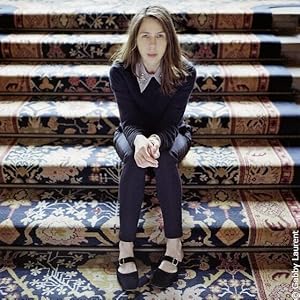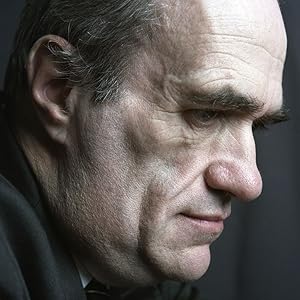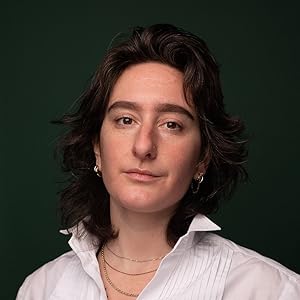Andrew O'Hagan
关于作者
Instagram: @andrewohaganauthor BIOGRAPHY Andrew O'Hagan was born in Glasgow. His novel Mayflies won the Christopher Isherwood Prize. He has been nominated for the Booker Prize, was voted one of Granta’s Best of Young British Novelists in 2003, and won the E.M. Forster Prize from the American Academy of Arts and Letters. He is Editor-at-Large of the London Review of Books and a Fellow of the Royal Society of Literature. Andrew also writes regularly for The New Yorker, Esquire, and the New York Review of Books. In 2024, he was made an Honorary Professor of Literature at the University of Glasgow. The BBC adaptation of Mayflies, produced by Synchronic Films, won a BAFTA for best scripted drama in 2023. Caledonian Road is to become a returning TV drama, produced by Sinestra Films, directed by Johan Renck (who directed Chernobyl for HBO), and the show runner is Will Smith who wrote Slow Horses. UPDATE My last novel, Mayflies, published n 2021, is the story of Tully Dawson, a music-loving hero, the narrator's best friend. They made a small legend of their glory years. In the summer of 1986 their shared love of bands and politics projects them, with a group of their chums, to a festival in Manchester and the very pinnacle of their youth. Thirty years later, the telephone rings. Tully is facing the crisis of his life and that old friendship is put to the test. I was overwhelmed by the way Mayflies was taken up by readers. I still get hundreds of messages from readers throughout the world -- men and women who identify with the deep friendship of Tully, Jimmy and the boys. Many of my readers lost someone in their lives and the book, in a way, seemed to become a rallying place for readers who'd experienced such personal loss. The book, and it's adaptation by the BBC, really struck a chord and the story is very close to my heart. For my new book Caledonian Road, I worked on a much bigger canvas, giving a portrait of modern Britain, but it is no less intimate -- in some ways, it is more so. As with Mayflies, it's a story about a man finding out what he's made of -- but in this case, he is also about to find out what the society he lives in is made of. Campbell Flynn is a fifty-something Scottish art historian living off the Caledonian Road. He is successful, well-connected, living in a big house in a beautiful square, with a wife he loves and interesting children. But something is going badly wrong. The quintessential 'good liberal', Campbell is teetering on the edge of something awful -- he is losing himself. Is he decent? Has he been ignoring what his friends have been doing? Is he obsessed with money? Is he is falling into error? Is he on 'the right side of history"? Over the course of a single year, from May 2021, secrets and corruptions begin to be revealed to Campbell, and his own mistakes begin to take over his life. 'He always knew that when his life came tumbling down, it would occur in public.' Power. Money. Politics. Set at the high water mark of Boris Johnson's Britain, Caledonian Road is a story of our times, the story of one man's epic fall from grace. One American journalist has called it 'like having a backstage pass to London'. That's what I wanted to write: in the great tradition of the Victorian novel, a page-turning with ethical eruptions. 'A BARNSTORMING NOVEL' The Observer 'WHERE ARE ALL THE GREAT STATE-OF-THE-NATION NOVELS? STEP FORWARD ANDREW O'HAGAN' The Sunday Times 'PULLS DOWN THE FACADES OF HIGH SOCIETY...AN UTTER JOY TO READ.' Monica Ali 'WITH THIS MAGNUM OPUS, O'HAGAN HAS MADE A SOCIAL MIRACLE.' Pulitzer prizewinner Josh Cohen 'I LOVED THIS NOVEL -- LOVED ITS AMBITION AND SCALE AND SCOPE AND CERTAINTY -- IT'S PANACHE AND BRIO AND JOY IN THE WRITING.' Peter Morgan, creator of The Crown A JOURNEY INTO MY BOOKS I grew up loving stories where real worlds and imagined ones fuse together. There's a grain of fiction in every day facts, and a quality of fact in the fiction I care about. To tell the truth, I've always felt that Britain is as pretty under-described territory, so from the beginning it seemed natural to me that reporting and memory, as much as plot and invention, might open up new stories to readers. My first book was The Missing. I was in my 20s then, and was still thinking about a child who had disappeared from a housing estate near ours in Ayrshire. I went in search of him, and it became a search into the lost nature of my own family story, as well as a tendency, in certain British lives, for people's narratives to fade. I covered the trial of the killer Rosemary West and looked for the stories of the victims, many of whom had never been reported as missing. When the book came out it seemed to chime with an atmosphere in Britain, a worry about what our politics was doing to our sense of decency and the common good, and I followed it with essays about the the state of the nation. I've never really stopped writing those pieces, most of them appearing in the London Review of Books. My first novel really grew out of those enquiries. I wanted to animate the idealism behind the slum-clearance obsession in Glasgow in the 1960s, and it centred on one family, the Bawns, and their post-war experience. When the novel was shortlisted for the Booker Prize, a lot of people wrote to me about what was happening in their own communities. Some of those people were from Eastern Europe, too, talking about how fiction might play a part in understanding 'improvement' and raising awareness of how we live now. I was gripped by the rise of celebrity culture and wrote a novel, Personality, a book in many voices, inspired by the life of a young singer from a Scottish island who suffers in the midst of fame. That interest took a comic turn in The Life and Opinions of Maf the Dog, narrated by Marilyn Monroe's dog, a real little entity called Mafia Honey. (Given to Marilyn in 1960 by Frank Sinatra. For real.) I spent a lot of time in American researching that book, making TV programmes and getting to know the absurd. In Be Near Me, I focused on the problem of a troubled and troubling priest living in a small Scottish community, suddenly wrapped up in a blaze of publicity that sends him back into his own conscience and memory. And in The Illuminations, I told the story of a young soldier returning from Afghanistan, and his closeness to his grandmother, a documentary photographer with a host of secrets in her past. Writing, for me, has always been a process of entering into a dialogue with my readers, finding common ground and fresh debate. It's great meeting audiences at festivals and hearing how the stories I've tried to unearth sit with their experience. Our common knowledge of the world is constantly changing -- being deepened, altered, challenged, made new -- and I've used reportage and the essay to engage in my own way with those changes. The digital world is a place of thrilling power-displacement and threat and I have sat inside that world and described it close-up in my writing. The Secret Life, a book of non-fiction, gives accounts from the front line with Julian Assange, with the purported inventor of Bitcoin, and from a digital world where identity is unstable. In The Atlantic Ocean, essays and reports from all of those fronts, and others -- hurricanes, court cases, journeys into war -- were brought together to show readers that truthful writing might still be our best mode of witnessing. Mayflies distilled a single summer and a lifelong friendship into a bestselling book. With Caledonian Road, I feel I've used the past to reach into the present, to find a new kind of story. A reported novel, it dramatises the internet era in modern London.
阅读完整简历















